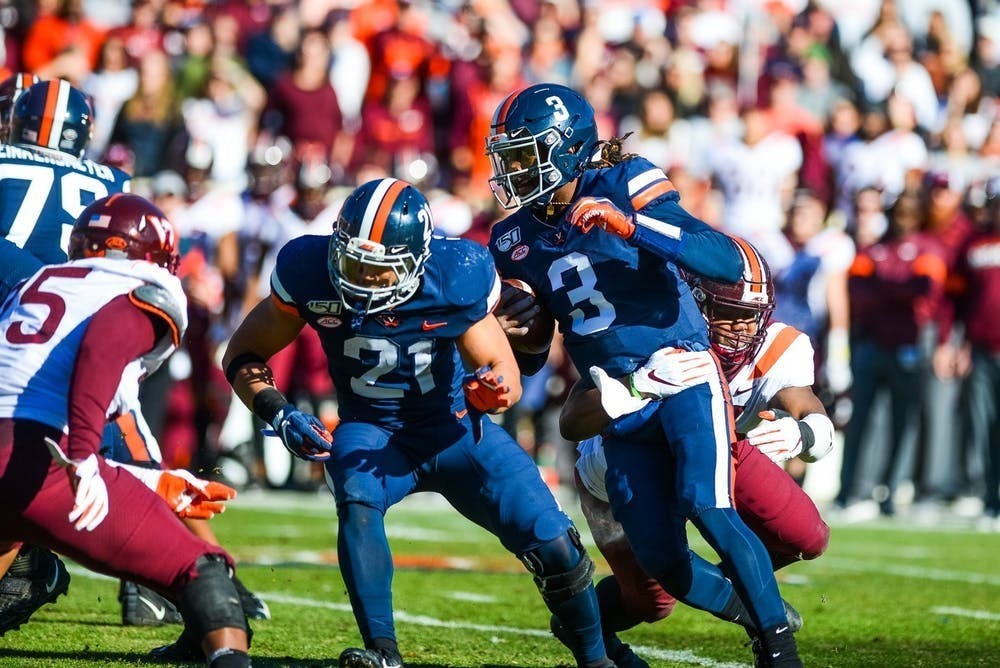A recent article in The Cavalier Daily focused on reasons U.Va. stakeholders should be worried about Cavalier athletics. While the evidence presented does have its merits, I’m going to tell you why you should not worry.
The University is taking on important projects to improve both athletics and academics on Grounds. Most notably, under Director of Athletics Carla Williams, the University has entered its first phase of a $180 million Master Plan to enhance facilities and the student-athlete experience. Rather than focusing on facilities that only provide improved opportunities for football and men’s basketball — like many other institutions competing at high levels in sports and academics — this plan includes upgrades for lower profile sports, too. Having spoken with current and former Virginia athletes competing in a variety of sports, this project is necessary not only for recruiting and continuing athletic excellence, but also for the health and safety of our athletes.
As for academics, the University has updated its policies for athlete admissions. To ensure athletes are getting more out of their education, the University has also revamped its athletic academic support program. Rather than focusing on rote memorization and basic understanding of their course work, athletes engage with the Cavalier Academic Support Team, tutors, mentors and peer athletes to apply and evaluate their course work in ways that deepen understanding and allow for connections to their own experiences. Additionally, the athletic department is in the process of launching a career development program housed in the new Center for Citizen Leaders and Sports Ethics.
To say that the University is sacrificing academics for athletics ignores all of the positives the department of athletics does to enhance the athlete experience and their futures. If someone thinks U.Va. is making this sacrifice, I suggest they discuss this notion with current University athletes who balance school and sports at arguably one of the highest levels in Division I athletics. I’ve observed this balancing act firsthand in my course, “Athletics in the University,” where we explore this topic, and a host of others pertaining to big-time college sports.
Furthermore, the previous article mentioned that athletes use a prestigious university like U.Va. as a stepping stone to professional leagues, creating a focus on eligibility rather than academics. First, this is not the fault of the University — or any other institution for that matter. Rather, this is the consequence of a system constructed by professional leagues such as the NBA and the NFL that require athletes to be a certain age or a certain number of years removed from high school prior to entering their drafts. Athletes that would rather go to a professional league right out of college are forced to attend an institution or head to Europe to compete before they can enter their respective drafts. Second, while eligibility is a concern and some may view the degree requirements for athletes as conservative, the standards to which the University holds its athletes to are actually more stringent than what the NCAA requires.
The University also graduates 92 percent of its athletes, which is higher than the NCAA average for Division I schools. The previous article views this number as insignificant and questions what these graduates learned that could help them after college. Research with athletes demonstrates how valuable and rewarding their athletic participation can be. Just a few things athletes take away from their sport opportunities include leadership, teamwork, responsibility, ethics, health and well-being and acceptance of diverse others. In fact, many companies target former college athletes from all sports and competition levels because of these enhanced qualities.
My research in the Curry School of Education centers around the academic lives of intercollegiate athletes, and I’ve worked firsthand with several U.Va. athletes. From what I have seen, U.Va. students, faculty, alumni, donors and fans should not worry about Cavalier athletics. Our athletes ably represent our institution both on their fields of play and in the classroom. The University is not failing these athletes, but is, in fact, working diligently to provide them with the resources they need to succeed at U.Va. and beyond.
Molly Harry is a Ph.D. student in the University of Virginia’s Curry School of Education and Human Development and the instructor for the course Athletics in the University. Her research is focused on the intersection of academics and athletics, particularly bridging the gap between the academy and sport.







